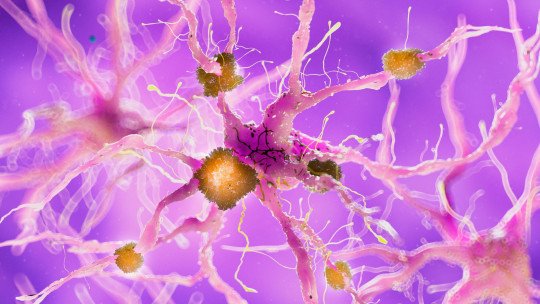
In this article, it will be broken down how the nervous system is related to thinking and thinking to the nervous system, therefore we must recognize the fact that there is a direct interconnection with emotions, because Our thoughts create our emotions and our emotions impact our thoughts
What exactly is the nervous system?
We are going to introduce ourselves to the world of the nervous system in relation to human emotions. First of all, it is important to make clear that the nervous system is mainly made up of 2 parts. One is the central nervous system and the other is the peripheral nervous system. The central nervous system is made up of the brain and spinal cord, while the peripheral nervous system is made up of all the branching nerves from the spinal cord and spread to all parts of the body.
The nervous system is responsible for transmitting signals between the brain and the rest of the body, including internal organs. In this way, nervous system activity controls movement, breathing, vision, thinking, and more.
What makes up and controls the nervous system are neurons. The brain contains about 100,000,000 neurons and they communicate with each other, even over long distances There are different types of neurons responsible for carrying out different tasks. For example, there are motor neurons, which are responsible for transmitting messages from the brain to the muscles to generate movement.
There are also sensory neurons, which are responsible for detecting light, sound, smell, taste, pressure, climate and thus sending those messages to the brain. And there are other parts of the nervous system that control involuntary processes, such as the regular beating of the heart, release of hormones such as adrenaline, constricting the pupils, and regulating the digestive system.
The nervous system also contains cells not categorized as neurons, called glial, which are responsible for supporting and keeping neurons in place, protecting them, repairing and restoring neuronal function, moving nerve impulses, trimming dead cells, and regulating neurotransmitters.

The relationship of the nervous system with emotions
All the time the human being is thinking, that is a function that we have automatically, and those thoughts directly impact the emotions, if a person always thinks positively, they will always feel positively. If a person always thinks negatively, he or she will feel negative
The question is, where do the thoughts come from, because some people are more positive than others, because there are people who apparently tend to be happier than others and the truth is that a set of different factors causes a person’s personality to vary, but The objective here is to recognize how that set of factors that makes up a person is related to the nervous system.
As explained previously, your nervous system is designed to function in a certain predetermined way, each part, neuron, etc., has its specific function and executes it in congruence. What happens when the person upon entering the world begins to experience traumatic, hard, strong or difficult situations to assimilate? And in this way the person accumulates traumas, activating defense mechanisms, which sooner or later will obstruct the optimal functioning of the nervous system, because they relapse and directly impact the limbic system (an organ connected to the nervous system. It is the part of the brain responsible for processing emotions).
And that is why in a few words, it is concluded that moods and emotions are what regulate and control the expansion or contraction of the organs of our body, and all the organs of our body are connected to our nervous system, therefore Therefore, our emotional world controls and dictates that the functioning of the nervous system is carried out correctly, our emotions and moods are what allow or do not allow the nervous system to carry out its work in regulation (optimal function) or in deregulation. And the dysregulation of the nervous system is generated through psychological trauma.
So yes, psychological trauma activates survival mode, which does not allow the nervous system to execute its functions correctly, keeping you in modus operandi based on trauma or contraction, instead of modus operandi based on expansion, optimal functioning We are designed to evolve and expand, not to survive and contract, and that is why mental health plays a very important role in the impact of the nervous system.
An emotional world taken into account and happy is equal to a nervous system functioning freely and optimally. An emotional world in chaos or traumatized is equal to a nervous system functioning in survival mode and in deregulation.








